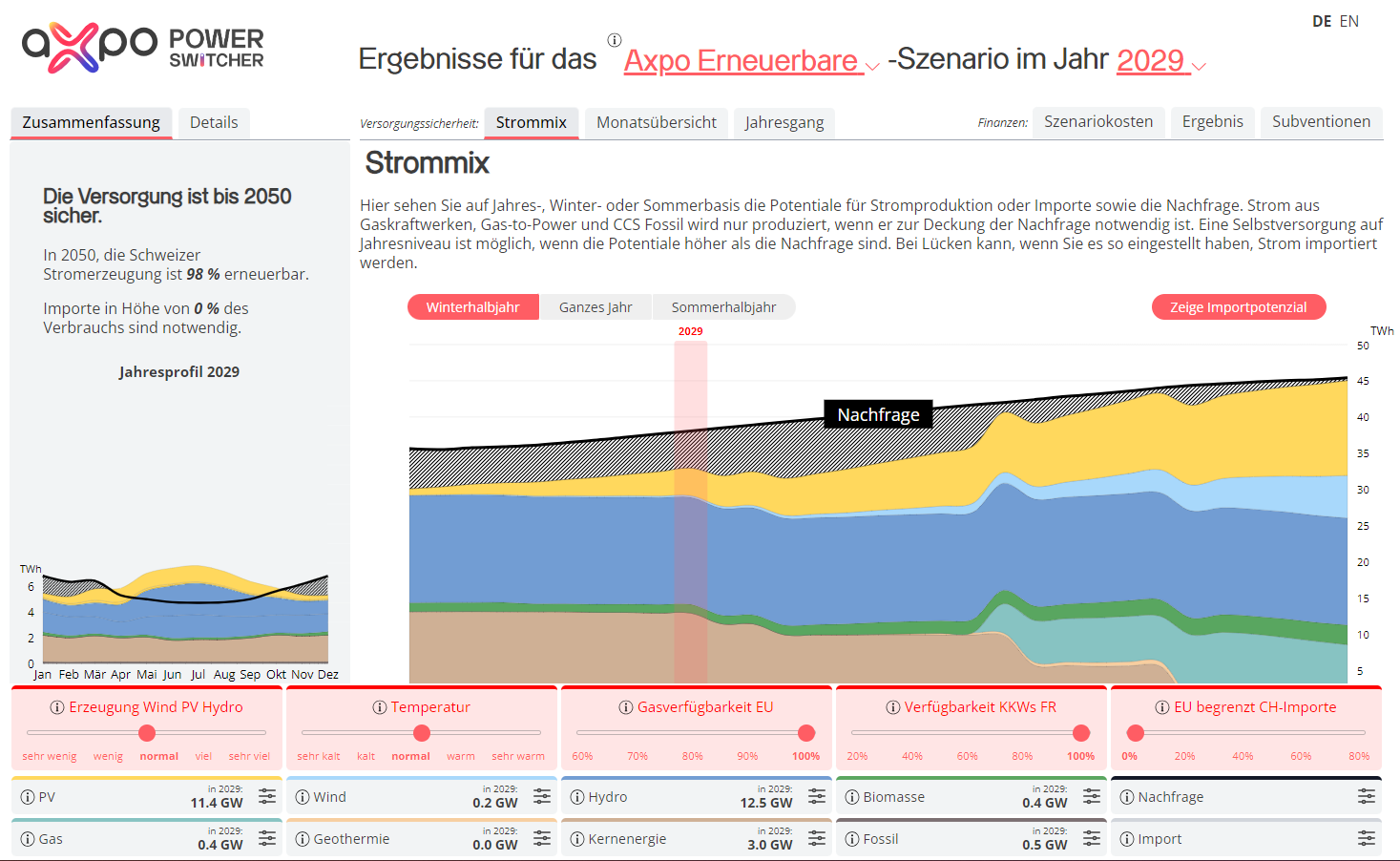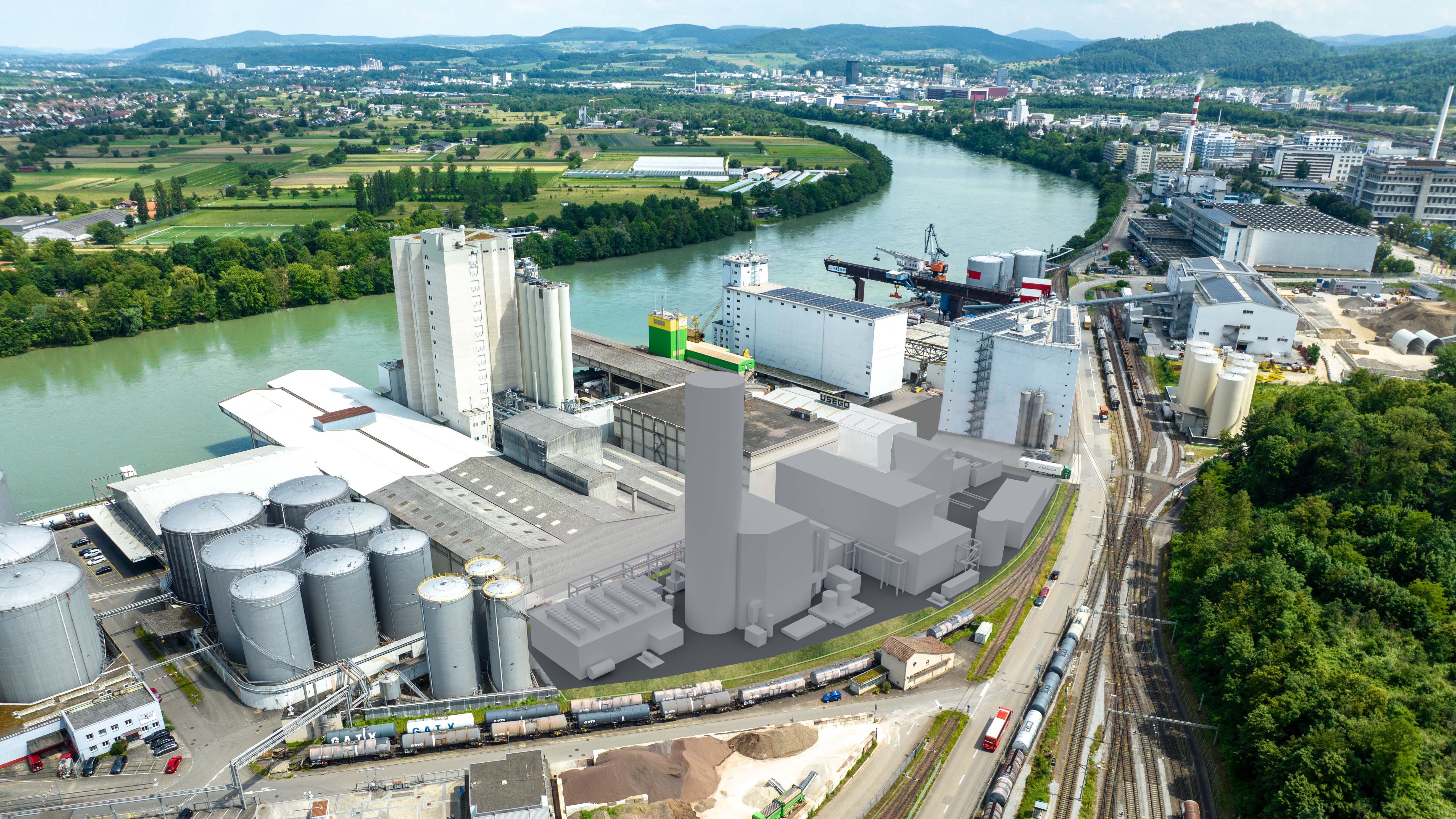
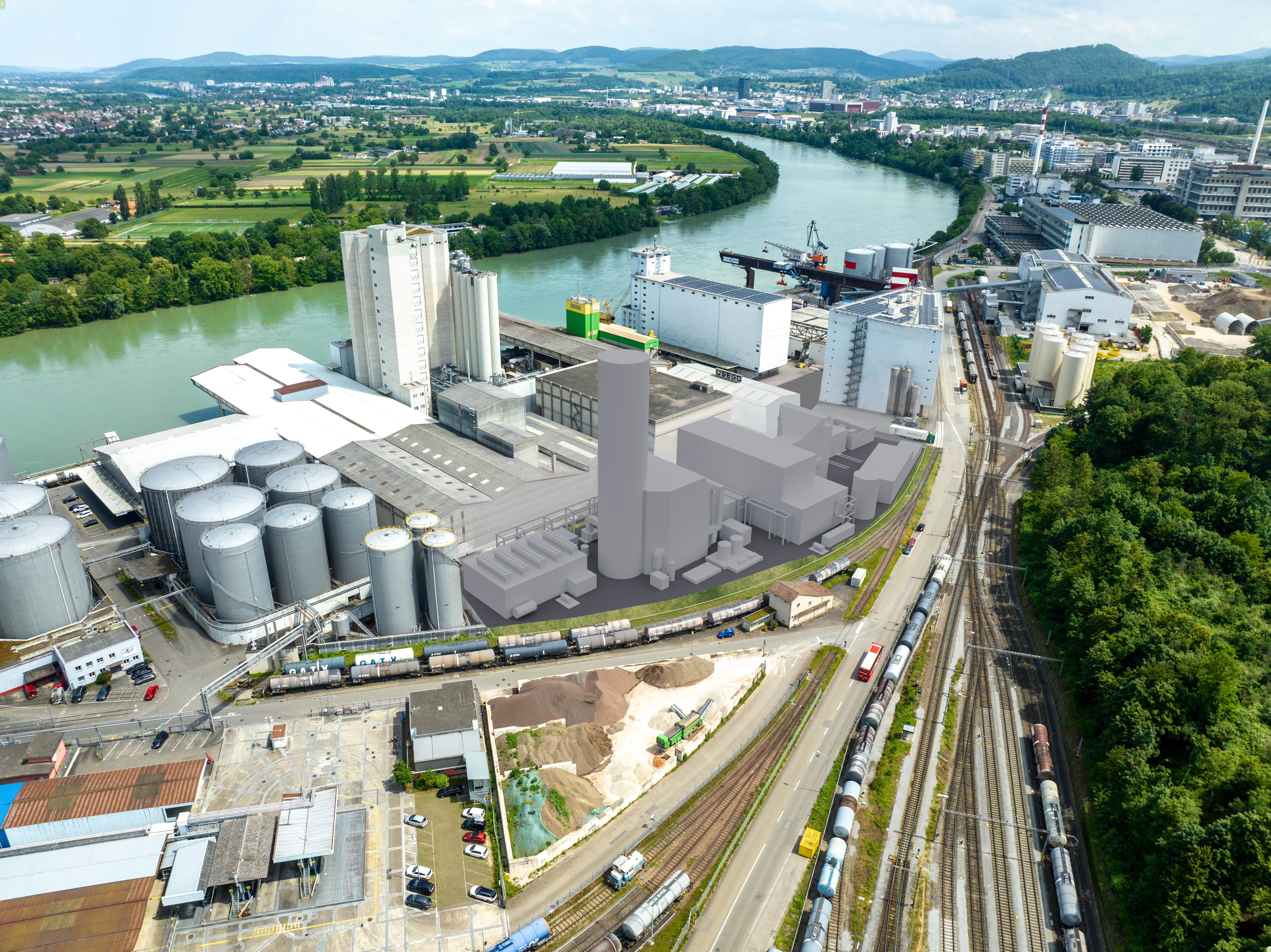
Axpo reserve power plant in Muttenz (BL) Strengthening security of supply on a CO₂-neutral basis
Large-scale and prolonged power shortages can have serious consequences for the economy and society. In order to improve Switzerland's security of supply, the federal government is therefore relying on reserve power plants, among other things. Axpo is making a substantial contribution to this with the planned reserve power plant in Muttenz (BL). Thanks to the planned operation with biodiesel and later eMethanol, it will strengthen the security of supply on a CO₂-neutral basis.
MW
Installed capacity
Households
Equivalent to the consumption of so many households
Start
Earliest possible commissioning
Questions and answers about the reserve power plant
Facts & figures
eMethanol is a promising energy source for the future because it is produced from climate-neutral electricity and biogenic CO2 and can be transported and stored over long distances and periods of time. However, it will take several years before sufficient production facilities are in place across Europe and the logistics infrastructure is established in Switzerland. That is why we are preparing the ‘Methanol Ready’ power plant as a first step. This means that the power plant and its infrastructure will be built in such a way that it can be converted to methanol operation within a few years if required. Axpo and the power plant builders are thus doing some pioneering work in the field of technology. On this basis, the introduction of eMethanol can be implemented in a second step when the energy industry environment demands it. Until then, climate-neutral HVO (a biodiesel) will be used.
The reserve power plant in Muttenz has an installed capacity of 291 MW. In full operation, it produces enough electricity to meet the needs of around 600,000 four-person households.
eMethanol is a promising energy source of the future because it is produced from climate-neutral electricity and biogenic CO2 and can be transported and stored over longer distances and periods of time. However, it will still take a few years before sufficient production facilities have been set up across Europe and the logistics established in Switzerland. That is why we are preparing the ‘Methanol Ready’ power plant as a first step. This means that the power plant and its infrastructure will be built in such a way that it can be converted to run on methanol within a few years if required. Axpo and the power plant constructors are thus carrying out some pioneering technological work. On this basis, the introduction of eMethanol can be implemented in a second step if the energy industry environment demands it. Until then, climate-neutral HVO (a biodiesel) will be used.
As the electricity produced is only used for emergency preparedness and the power plant is not allowed to participate in the electricity market, Axpo receives compensation for the construction and operation of the power plant.
The planned site for the reserve power plant in Auhafen Muttenz is ideally suited due to its location in an industrial zone with no direct impact on neighbouring residential areas, the infrastructure already in place there and optimal transport links, particularly to rail and water.
In concrete terms, this means:
- The Muttenz Auhafen harbour is already an isolated transshipment and industrial zone with no direct impact on the surrounding residential areas.
- The power plant can use the existing infrastructure and primarily the transport routes of rail and water to transport and handle the fuels. This also has the advantage that there is no additional impact on neighbouring residential areas.
- Thanks to the proximity to the existing tank farm, the costs for the storage, handling and supply of the required fuels can be kept low.
- The electricity generated can be fed into the existing and nearby Primeo Energie power grid.
Axpo intends to prepare the documents for the planning application and submit them to the canton of Baselland by the end of 2025. Proof will also be provided that all noise and emission limits will be complied with. The project will then be publicised. Once the building permit has been issued, the construction period will take around three years, meaning that the earliest possible date for commissioning is 2029/2030.
The rededication of part of the Auhafen port away from fossil fuels and towards CO2-neutral energy sources is an important first step in transitioning the port to the post-fossil era. This will enable the port to maintain its position as an important logistics hub for energy carriers. In addition, 17 per cent of the current tank storage capacity will be dismantled to make room for the new power plant.
Operation of the reserve power plant
Axpo will operate the power plant with CO2-neutral fuels: initially with HVO (a biodiesel). As soon as eMethanol can also be used in the power plant and eMethanol is available on the market, the use of eMethanol can be started in a second step. If HVO and eMethanol are not available, conventional diesel or later conventional methanol would be used as a secondary fuel. In the case of operation with conventional fuel, the power plant offsets its CO2 emissions.
The abbreviation HVO stands for "Hydrotreated Vegetable Oils". The HVO biodiesel intended for the reserve power plant is a synthetic diesel fuel that is produced from recylced vegetable oils (e.g. used cooking oils) or animal fats (e.g. slaughterhouse waste). If production is carried out using renewable energy, HVO biodiesel is completely CO2-neutral.
Methanol is a clear, colourless liquid from the alcohol group of substances. eMethanol is methanol produced in an environmentally friendly way from hydrogen and carbon dioxide. The hydrogen is produced using renewable energies and the carbon dioxide comes from industrial processes or the atmosphere. eMethanol is CO2-neutral, as only the previously bound CO₂is released during combustion, and is ideal for generating clean energy and as a climate-friendly alternative in areas where a liquid fuel is still required.
The technology of such power plants is basically well proven. The applicable strict emission limits are complied with at all times. The technology used guarantees very low-emission combustion compared to emergency power generators. In addition, nitrogen oxides are reduced to a minimum by a catalytic converter, which goes well beyond the standard power plant technology used in Europe. Part of the authorisation process is an environmental impact assessment (EIA), in which the environmental protection measures taken and the remaining emissions and expected immissions are presented. By using HVO biodiesel and later eMethanol as fuels, the reserve power plant provides CO2-neutral emergency precautions.
Thanks to optimised combustion and exhaust gas purification, only a fraction of the emissions of nitrogen oxides (NOx) and carbon monoxide (CO) caused by emergency power groups are produced. By using HVO biodiesel and later eMethanol as fuels, the reserve power plant provides CO2-neutral emergency power.
The actual power plant section is located inside a building, so noise emissions will not be high even in the immediate vicinity of the power plant. It is also located in an isolated transshipment and industrial zone and far away from any residential areas. Compliance with the applicable noise protection limits can therefore be guaranteed. Based on a provisional environmental impact report that has already been drawn up, it can be stated that the plant is on track in terms of noise protection.
Commissioning is not expected until 2029/2030 at the earliest, with the reserve power plant functioning like an insurance policy and only being commissioned by the federal government in the event of imminent power shortages. Only a few operating hours are therefore to be expected. The electricity produced is only used for emergency supply and is not part of the regular electricity market.
In an initial phase from commissioning, Axpo plans to use HVO (a biodiesel) as the primary fuel. Conventional diesel will only be used if it is not available. Once the methanol capability of the power plant has been developed and the availability of eMethanol is sufficient, the switch from HVO to eMethanol can be implemented. Conventional methanol would then be used as a secondary fuel if eMethanol is not available.
The amount of HVO biodiesel required for 16 days of continuous operation is 32,000 m3, for eMethanol the amount is 68,000 m3 due to the lower energy density. For comparison: approx. 540,000 m3 of combustibles and fuels can currently be stored in the Auhafen harbour. The power plant is designed as a reserve power plant and the actual operating hours are likely to be very low.
Primeo Energie will feed the electricity into the existing Münchenstein-Schweizerhalle line via a new substation, whereby the grid will be reinforced.
The Auhafen reserve power plant will have no impact on groundwater. From today's perspective, no structures will be built in the groundwater area (no basements under buildings) and no lowering of the groundwater level is planned at any time during soil improvement work in the foundation area.
Mobile pumps may be used locally during the construction phase to prevent the groundwater level from rising.
The planned reserve power plant will have no impact on the drinking water supply. The Auweg drinking water pumping station, which supplies up to 6,000 m3 of drinking water per day, is located near the project site (in the inflow of the Auhafen). However, it can remain in operation without interruption or restrictions during the construction phase and afterwards. Any long-term impairment of the drinking water pumping station or the quality of the drinking water can be ruled out.
The planned reserve power plant will have no impact on the drinking water supply. The water level in the reservoir will remain unchanged during construction and afterwards if the reserve power plant is operated. At most, it may be necessary to lower the water level locally in a small area during the construction period. This area would be lowered for a short period of time and separated from the groundwater, but this would have no impact on the drinking water supply.
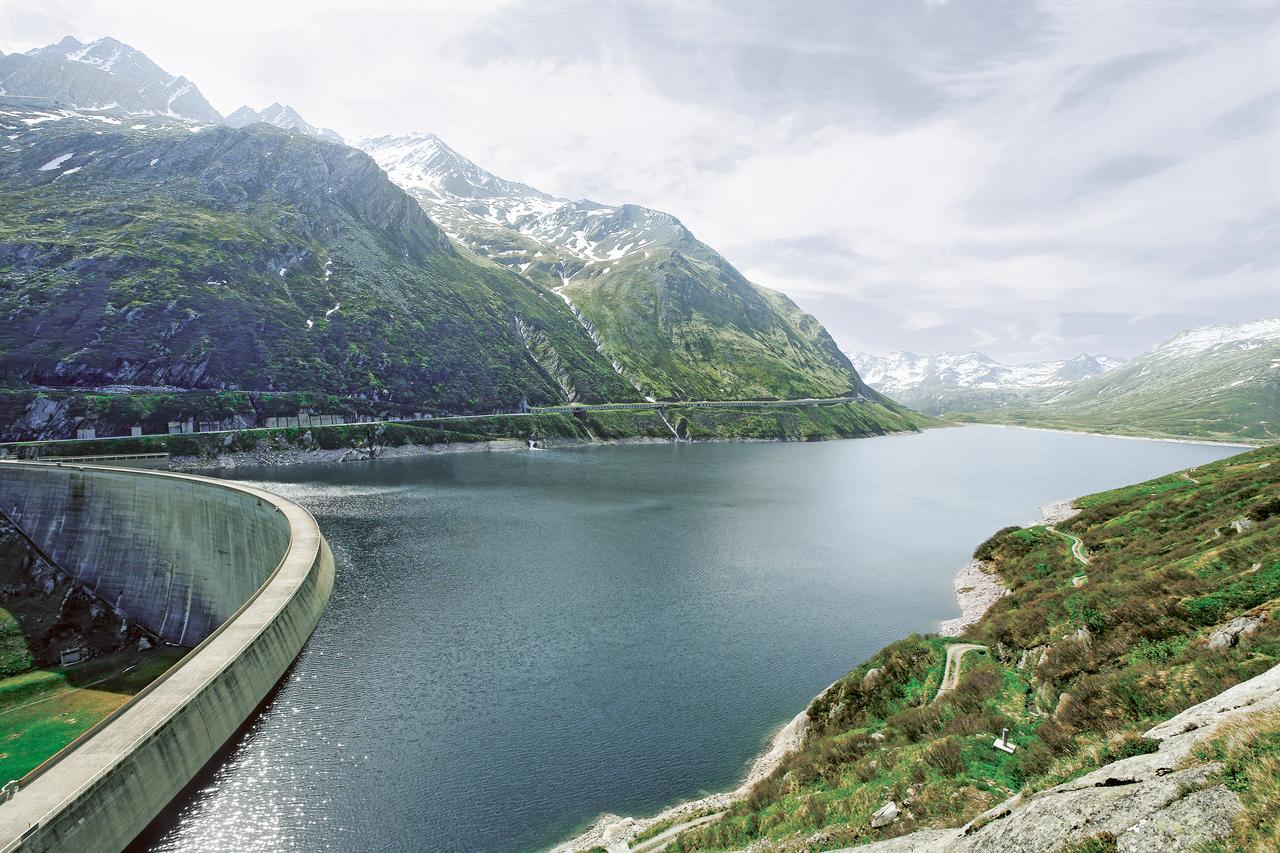
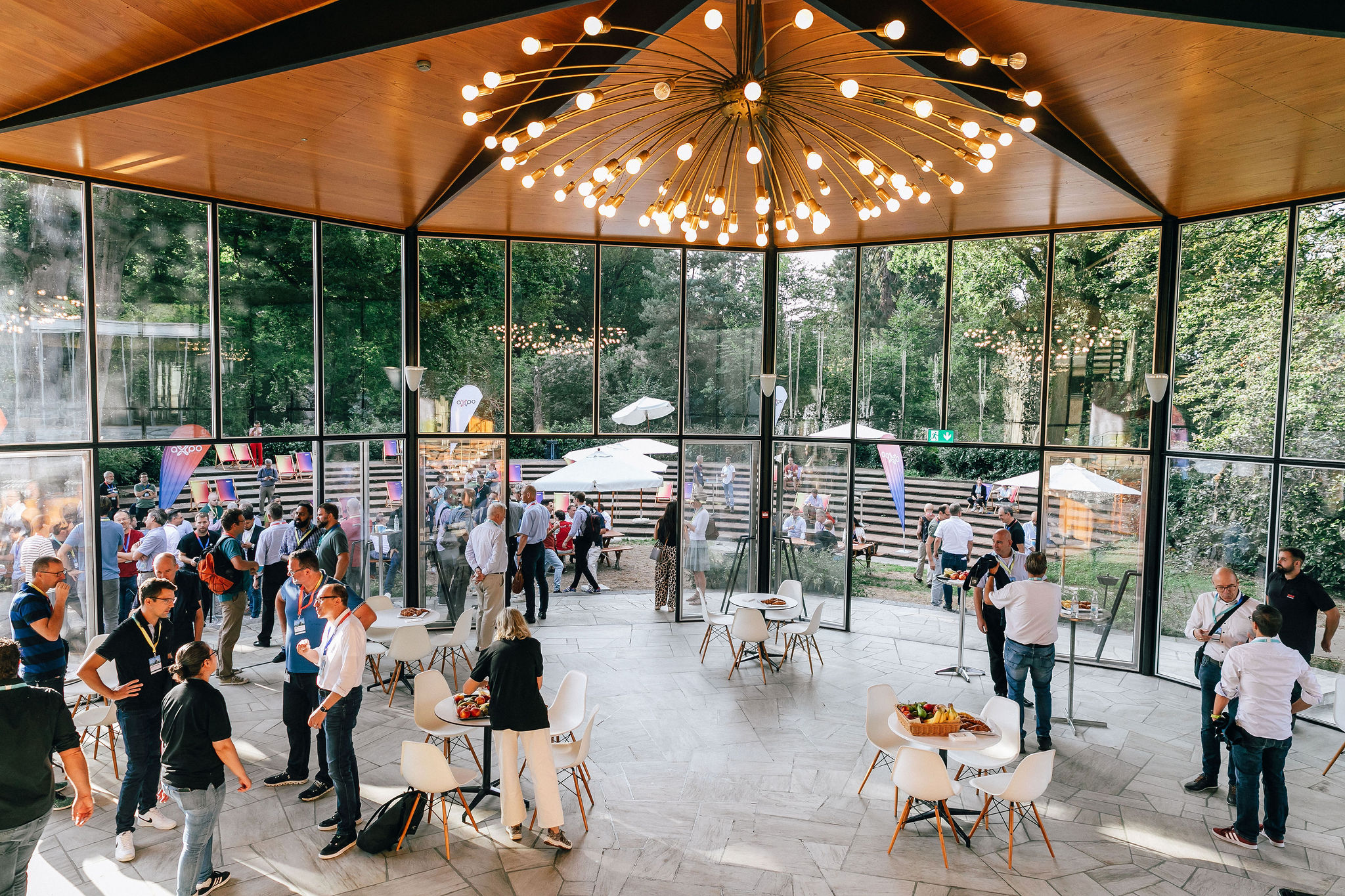


.jpg)

